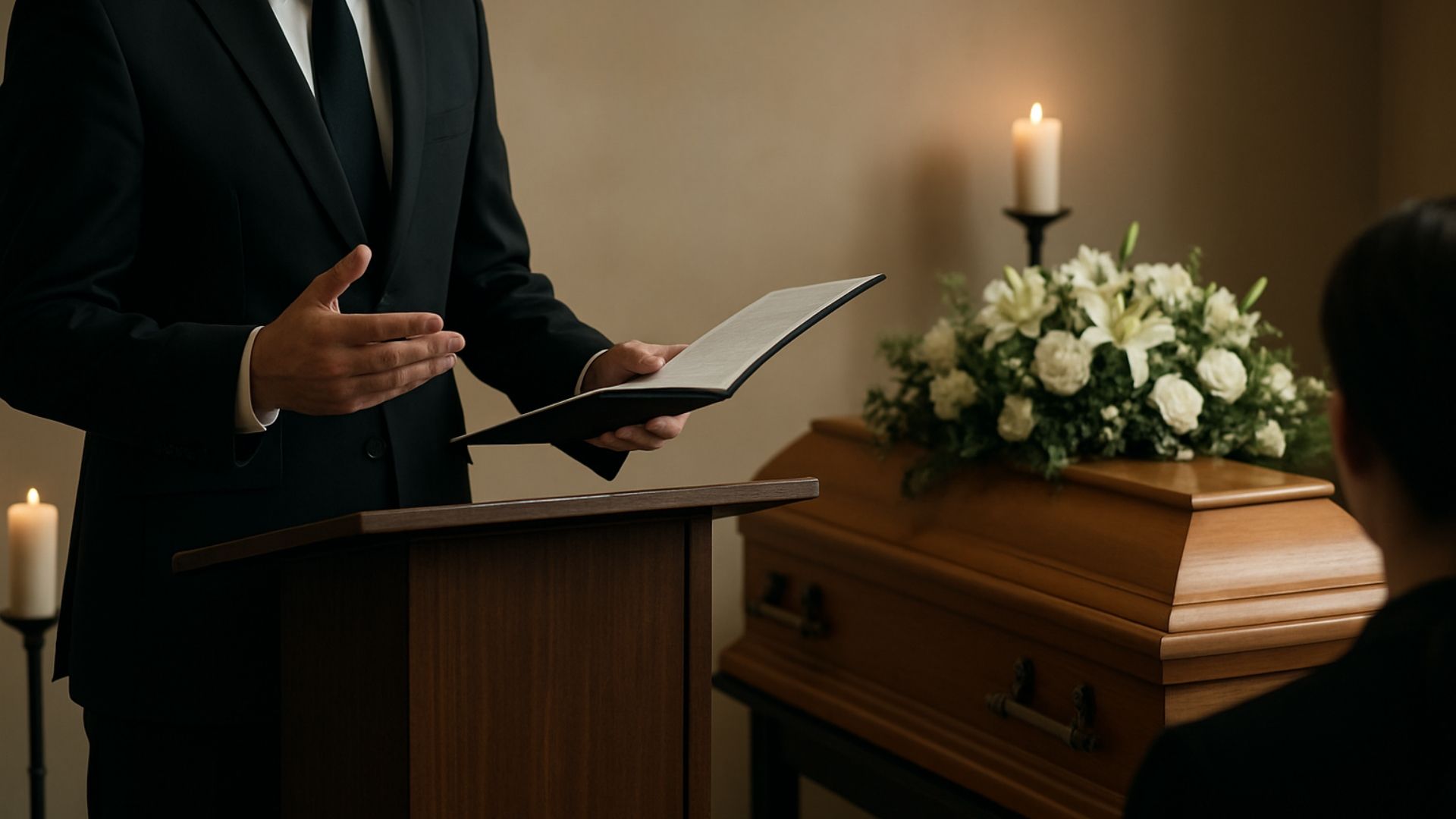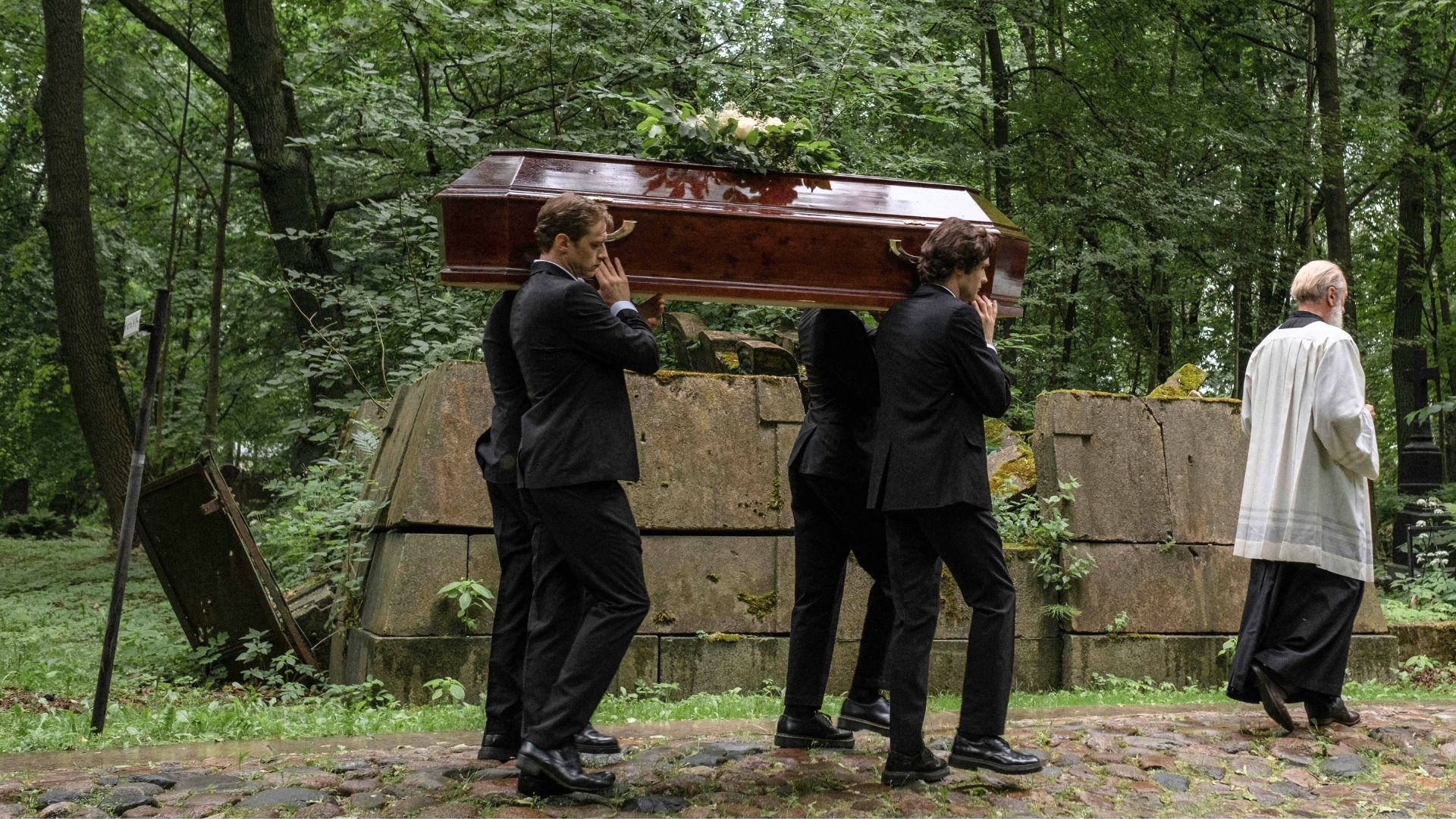Tips for speaking at a funeral
Are you getting ready to speak at a funeral or memorial? Here are some tips to make your speech a success.

Being asked to speak at a funeral is an honour. But for that very reason, it can make people stressed or anxious. It's not uncommon for people to feel unsure about what to say and how to say it.
At Akshardham Funeral Directors, we believe there's no right way or wrong way to grieve. By extension, we believe there's no right or wrong way to speak at a funeral.
Nevertheless, many people look for guidance when getting ready to speak at a funeral. At a time of high emotion, guidance can help put things in perspective and give you a helping hand.
That's why we've put together this list of tips for speaking at a funeral. We hope it helps you approach the task with confidence and calm.
What should I include in a eulogy?
When speaking at a funeral, your job is to commemorate the person who died. That could mean sharing memories of your relationship with them, sharing memories that family and friends have shared with you, or some combination of the two.
It could also involve reflections on the kind of person they were. What was their personality? How did people perceive them?
Next, you could include milestones from the person's life. These can relate to their personal life (relationships, children, friendships), professional life (promotions, career changes, and so on) or hobbies, passions and social life.
Some speakers choose to involve others when preparing their speeches. They ask friends and families for memories to share. How much you do this is up to you. It can, however, be a good way of conveying the different sides and dimensions of a person's life.
Should I read from a script?
At funerals, some people choose to read from a script and some read from notes. If you're unsure which path to take, it can be a good idea to practise one or both methods. You can do this rehearsal on your own or in front of a friend or relative.

It may be that you can remember everything you want to say with notes alone. Or you may feel more confident having a detailed script to fall back on. The deciding factor should be how the speech comes across and how confident you feel.
Whether you read from notes or a script, it can be a good idea to leave instructions for yourself. If you're worried about rushing, for instance, you could leave a note reminding yourself to take your time.
When writing the speech, remember that nothing is set in stone. You can always rewrite your speech until it feels right.
These are some tips about what to say at a funeral – so what about
how to say it? Here are five suggestions.
How to speak at a funeral
1. Introduce yourself
It may be that many or even most people at the funeral will know who you are. Nevertheless, it can be a good idea to introduce yourself and your relationship with the person who died. This provides context for the speech, which can make it more powerful.
2. Take your time
This is perhaps the most important tip on this list. When speaking in public, it's all too easy to rush through your speech. But speeches are always more affecting and effective when delivered slowly and clearly.
If you're new to public speaking – or even just new to speaking at a funeral – this can be easier said than done. This is one reason why practice can be so helpful.
You can practise alone in front of a mirror or in front of someone you trust and whose opinion you respect. Practise speaking slowly and clearly, taking regular pauses and enunciating each word.
3. Prepare to be emotional
When preparing to speak at a funeral, you may worry that you'll become emotional during your speech.

There are a couple of things to mention here. The first is that tears are expected and even appreciated at many kinds of funerals. If you do cry during your speech, it's unlikely that anyone will think less of you.
Secondly, there are things you can do to retake control if you cry during a speech. You can take a deep breath, take a sip of water or focus on a pre-chosen spot in the room.
4. Focus on the message, not yourself
When speaking in public, it's easy to think it's all about you. And in a way, it is – after all, you're the one up there with all eyes on you.
Nevertheless, it's important to remember that you're up there to draw attention to the person who has died, not to yourself.
This doesn't mean omitting mention of your relationship with the person – far from it. It just means putting the message first and communicating clearly.
5. Look at the audience
If you're not used to speaking in public, you might find yourself staring at your notes, your feet or, indeed, anywhere but at the audience.
Nevertheless, people often feel more engaged when the speaker looks in their direction. That doesn't mean you must make full eye contact (although you can if you want to). It just means directing the speech at the audience above all else.
How to decline an invitation to speak at a funeral
Speaking at a funeral is a big deal, and you may not feel you are up to it. In this situation, you might feel uncomfortable about declining or unsure what tone to take.
In our view, your best bet is to acknowledge the sadness of the occasion and thank the person for the invitation. You should then decline briefly and politely without an elaborate explanation. Like all aspects of funerals, however, it's up to you how you approach the task.
Akshardham Funeral Directors is a team of independent
funeral directors in Barnet, London. For more advice about funerals,
visit our blog or read our
funeral planning guides.









